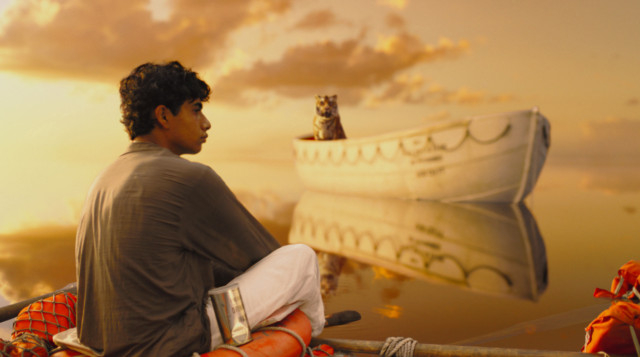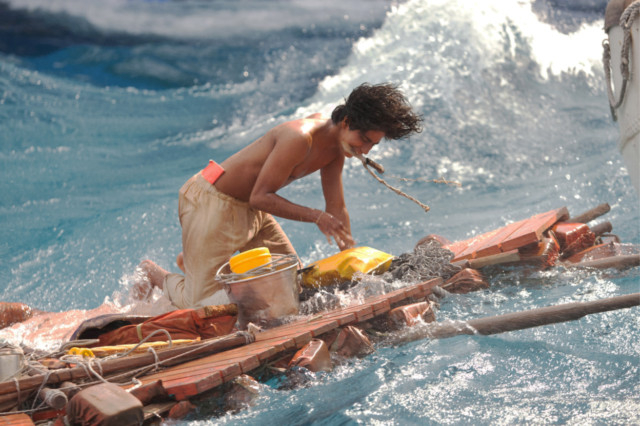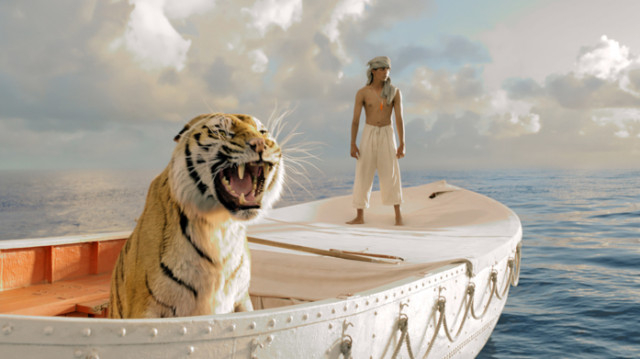
Referring to award-winning director Ang Lee’s latest film as a visual spectacle almost doesn’t do it justice. Life of Pi, which opened the Dubai International Film Festival last week, is both an assault on the senses and features such a masterful use of 3D, you’d be tempted to think Lee has just turned the medium on its head.
Part-adventure film, part-religious study and also an intimate study of our place as humans in the universal scheme of things, Lee’s masterful grasp of the essence of the story is so apparent and so effectively told that you happily ride (or float) along, convinced that the unbelievable tale is real.
Adapted by David Magee (Finding Neverland) from the Yann Martel best-seller of the same name, Life of Pi is the story of an Indian boy, who grows up in a zoo in Pondicherry, a former French colony in south India. Unable to bear the taunts in school, Piscine Molitor Patel (debutant Suraj Sharma) adopts the mathematical constant Pi as his name. An idealist, the Hindu-born Pi grows up to also adopt the best of Christianity and Islam as ultimate truths, much to the annoyance of his rationalist father (Adil Hussain) and the curiosity of his supportive mother (Tabu). These ideals are tested when he ends up in a massive storm, which kills his entire family and the inhabitants of the zoo (en route to Canada on a vessel), and he is left alone somewhere in the Pacific Ocean on a small boat with a hungry Bengal tiger for company.
Martel’s book is a deeply philosophical one, laced with subliminal messages of faith as man and beast fight for survival, and ever so often, exchange places as the universe watches, throwing in a few surprises here and there.
Saying any more would be giving away too much. But Lee stays faithful to the events as they unfold in the book and beautifully brings it to life. In what could be the most effective use of 3D yet, even more deft than, say, in Avatar, he deliberate retrains himself, springing a surprise when you least expect it.
First-time actor Sharma is a joy to watch and through his expressive eyes, convincingly conveys the desperation of a boy, forced to grow up quickly in a tiny boat as his spirit and health wanes. Tabu and Hussain, both indie darlings in India, shine in their small but effective roles. And the always-dependable Irrfan Khan, who plays a grown-up Pi and chief narrator, is so restrained yet so effective that when that twist at the end finally comes, and tears roll down his eyes as he delivers his line, I’d be surprised if you don’t at least get a lump in your throat.




